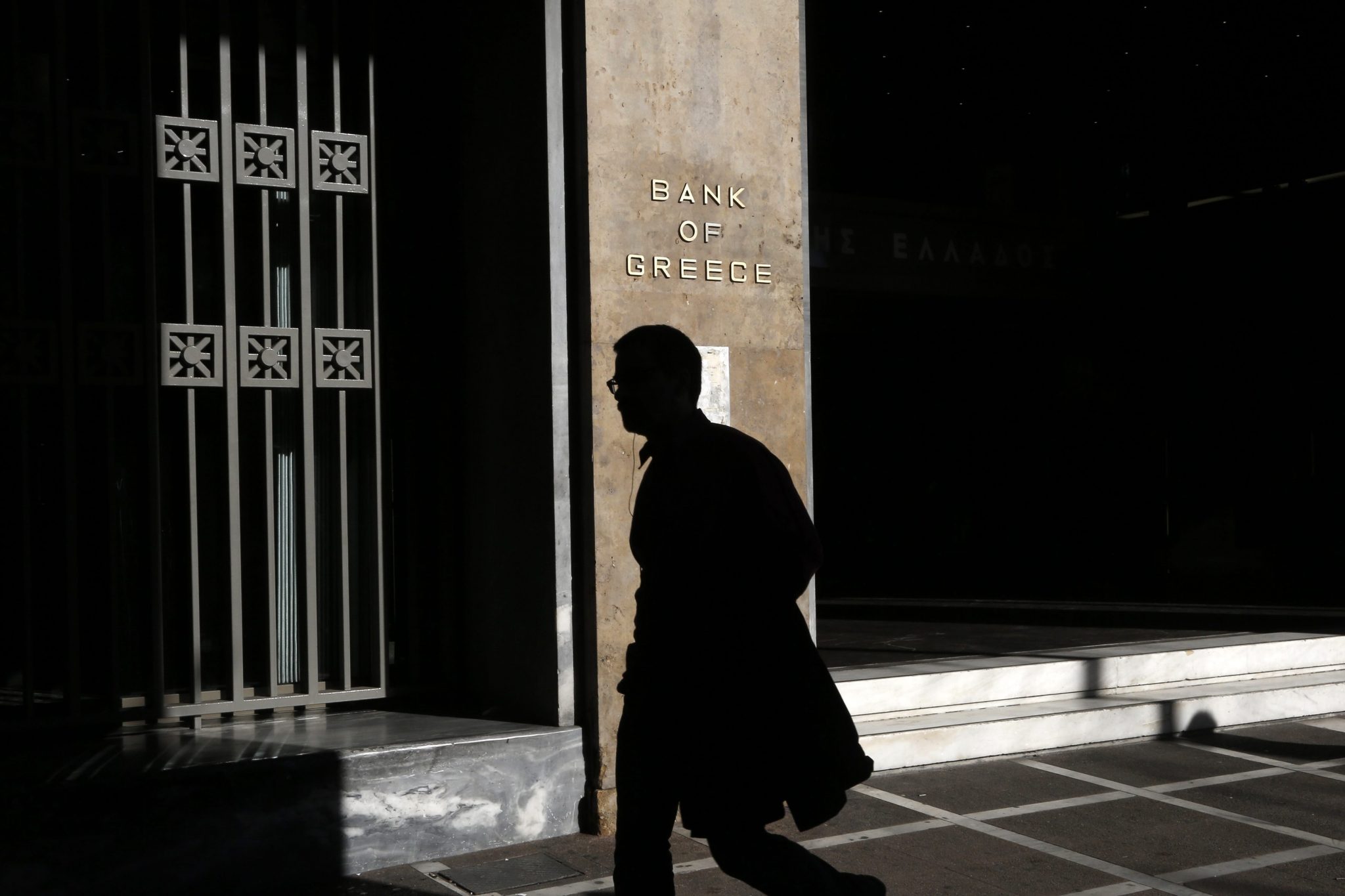
The real GDP growth rate of the Greek economy in 2023 is estimated at 2.0%, slightly accelerating to 2.3% in 2024 to 2.5% in 2025, before a slight downtick in 2026, according to Bank of Greece (BoG) data released on Friday.
Investments and private consumption are expected to be the key drivers of economic activity in the coming years.
Monetary policy will remain restrictive, the data says and public investments will positively contribute to growth thanks to the funds from the Recovery and Resilience Facility (RRF).
Economic growth in Greece is expected to be significantly higher than the eurozone average in the medium term, according to the BoG data.
Industrial production was up by 10.3% year-on-year in January 2024, primarily attributed to increased electricity supply (up 34% year-on-year) and manufacturing production (up 5.4% year-on-year).
General inflation based on the Harmonized Index of Consumer Prices (HICP) decreased to 3.1% in February 2024 from 3.2% in January, mainly due to lower annual rates in non-energy industrial goods and both processed and unprocessed food categories.
In the housing market, prices continued to rise in 2023 at an accelerated pace (13.4%) compared to an average annual increase of 11.9% in 2022.
Concerning the labor market, employment rose by 1.2% year-on-year in 2023, while the unemployment rate decreased to 10.5% in the fourth quarter of 2023.
In January 2024, the primary surplus of the general government was 0.9% of GDP, compared to a surplus of 1.5% of GDP in January 2023, mainly due to higher RRF receipts in January 2023.
Banking
In the banking sector, in January 2024, lending rates remained broadly stable for corporate loans (at 6.0%) but increased for housing loans to households (to 4.6%). Interest rates were moderated by Greece’s credit rating upgrade to investment grade.
Financial markets
Demand for the offering of shares of Piraeus Bank on the Athens Stock Exchange was strong, resulting in an oversubscription of 8 times the offered shares, with the price reaching €4 per share and proceeds of €1.35 billion.
Greek government bond yields decreased amid falling returns in the eurozone due to investors’ improved expectations for interest rate cuts from the second quarter of 2024 onwards. Yields on Greek corporate bonds remained generally stable.
Stock prices of Greek equities declined in recent trading days, mainly due to stocks of basic materials companies and banks.
Source: tovima.com
Latest News

IMF: US Tariffs Shake Global Economy, Outlook Downbeat
IMF slashes global growth forecast to 2.8% as U.S. tariffs create uncertainty and ‘negative supply shock

First Step Towards New Audiovisual Industry Hub in Drama
The project is set to contribute to the further development of Greece’s film industry and establish Drama as an audiovisual hub in the region

Airbnb Greece – Initial CoS Ruling Deems Tax Circular Unlawful
The case reached the Council of State following annulment applications filed by the Panhellenic Federation of Property Owners (POMIDA)

Mitsotakis Unveils €1 Billion Plan for Housing, Pensioners, Public investments
Greek Prime Minister Kyriakos Mitsotakis has announced a new set of economic support measures, worth 1 billion euros, aiming to provide financial relief to citizens.

Alter Ego Ventures Invests in Pioneering Gaming Company ‘Couch Heroes’
Alter Ego Ventures' participation in the share capital of Couch Heroes marks yet another investment by the Alter Ego Media Group in innovative companies with a focus on technology.

Corruption Still Plagues Greece’s Driving Tests
While traffic accidents continue to claim lives on Greek roads daily, irregularities and under-the-table dealings in the training and testing of new drivers remain disturbingly widespread

Pope Francis Died of Stroke and Heart Failure Vatican Confirms
As news of the official cause of death spread, tributes poured in from across the globe. The 1.4 billion-member Catholic Church is united in grief, remembering a pope who championed inclusion, justice, and compassion

Increase in Both Museum Visits, Revenues for 2024
As expected, the Acropolis was the top archeological site in the country, followed by Sounion, Mycenae, the ancient theater of Epidaurus, and Vergina in northern Greece

Where Greece’s Tourists Come From: A Look at 2025’s Top Visitor Markets
The United Kingdom continues to hold the top spot as the largest source of incoming tourism, with 5.6 million seats booked for Greece this summer — up 2.2% from last year. This accounts for 20% of all international air traffic to Greece

Pope Francis: A Pontiff Who Reshaped the Papacy and Sparked a Global Conversation
His first words from the balcony of St. Peter’s Basilica—“Brothers and sisters, good evening”—set the tone for a pontificate that would challenge norms, favor mercy over dogma, and bring the papacy closer to the people.












![Πλημμύρες: Σημειώθηκαν σε επίπεδα ρεκόρ στην Ευρώπη το 2024 [γράφημα]](https://www.ot.gr/wp-content/uploads/2025/04/FLOOD_HUNGRY-90x90.jpg)



![Ξενοδοχεία: Μεγάλο το ενδιαφέρον για επενδύσεις στην Ελλάδα – Η θέση της Αθήνας [γραφήματα]](https://www.ot.gr/wp-content/uploads/2025/03/Athens-hotels-90x90.jpg)
























 Αριθμός Πιστοποίησης
Αριθμός Πιστοποίησης